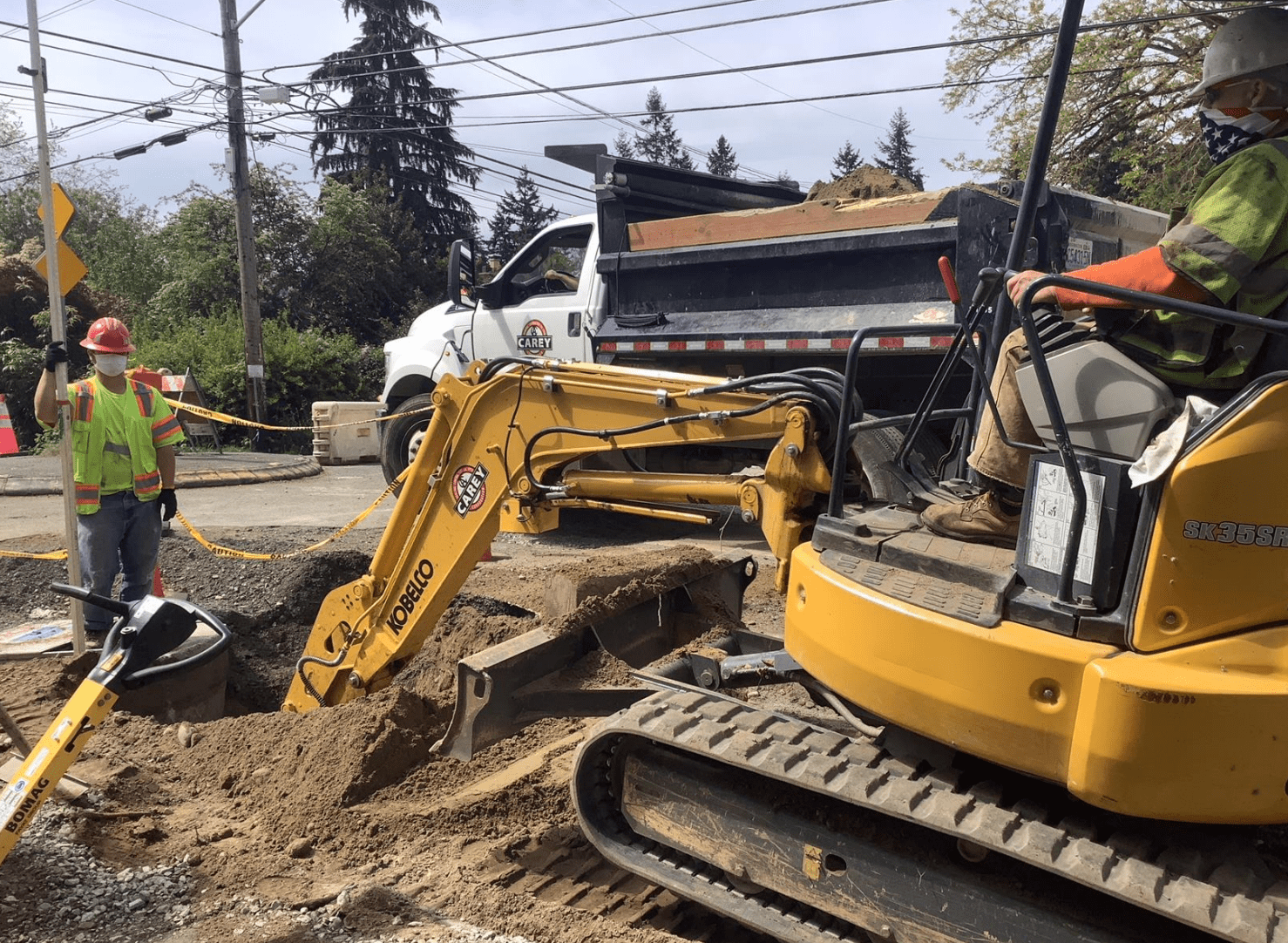
At the start of 2020, our project teams, crews, and contractors made meaningful progress on Levy to Move Seattle funded sidewalk, road, safety, and transit projects across the city.
However, starting in early March, like everyone in the city and beyond, we were confronted by the impacts of COVID-19.
Despite the many competing priorities that COVID-19 has brought, we made meaningful progress on Levy projects that make walking and biking routes safer, improve our sidewalks and busiest arterials, and create better access to transit, all outlined in our Q2 Levy Progress Report.
As the new normal was set in the spring with the statewide “Stay Home, Stay Healthy” order and physical distancing requirements, the COVID-19 pandemic changed our city’s transportation patterns, community, and business needs overnight. We responded quickly to address the many emerging needs of travelers, our essential workers, and to support neighborhoods and small businesses, which included programs and initiatives like Stay Healthy Streets, curbside pickup parking zones, hospital employee parking, free parking and suspension of the 72-hour rule, signal retiming and more.
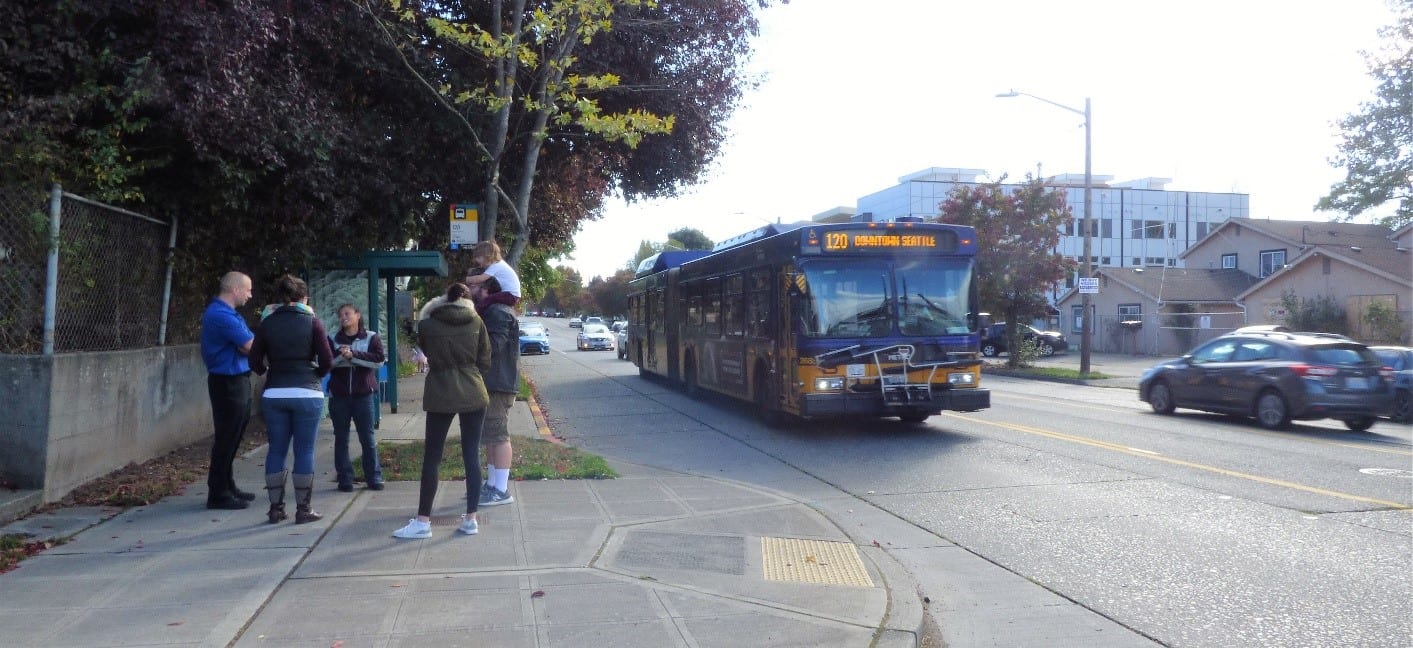
This spring we broke ground on the first major transit project funded by the levy!
We started construction to rebuild Delridge Way SW in West Seattle and improve the transit experience and capacity for this important corridor serving West Seattle residents and surrounding neighborhoods. This was a deliberate decision to continue this project even in the midst of the unplanned closure of the West Seattle High-Rise Bridge, as reliability on transit has become even more critical.
The project is in partnership with King County Metro, and is the first new RapidRide route funded by the Levy to break ground.
The Delridge Way SW improvements include:
- Rebuilding damaged streets
- Making pedestrian improvements like new crosswalks, lighting, and sidewalks
- Adding special bus lanes and signals to help prioritize transit and the new RapidRide H Line
- Adding new protected bike lanes

Currently, 34% of households along the RapidRide H Line route operate without a personal vehicle, making public transportation a critical way for people in the community to get around.
The new RapidRide H Line service will upgrade the existing Route 120, which is one of Metro’s busiest routes, and extend it farther north to South Lake Union.
RapidRide buses will be more reliable because they will have dedicated lanes and priority at traffic signals. New bus stations will be spaced every half a mile to reduce stops and decrease travel times, and will include new shelters, lighting, ORCA card readers, and real-time arrival displays.
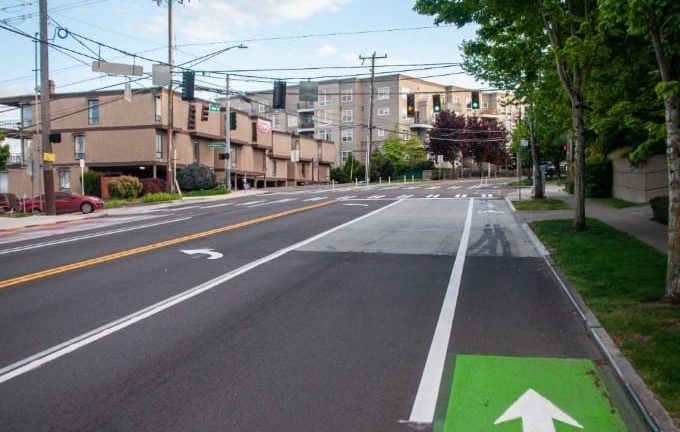
Also in West Seattle, we’re putting finishing touches on the Avalon Way SW paving project that enhanced the traveler experience for people driving, taking transit, biking, walking and rolling.
In early August we’ll be completing wrap-up tasks along the corridor, including touching up some final lane markings.
The Avalon Way SW Improvements include:
- Redesigned street to include protected bike lanes and an inbound transit only lane
- Closing of the intersection at 30th Ave SW and Avalon Way SW
- Fresh paving and repainted lane markings
- Improved and new curb ramps, sidewalks and street crossings
- New RapidRide transit stop
- New water main and drainage improvements
Along with improving safety for pedestrians and reducing cut-through traffic in residential neighborhoods, this project provides direct bike connections to the West Seattle Low Bridge. As we’re asking people who are able to reconsider how they travel across the Duwamish River, these new bike lanes will provide a safe option for many who choose to ride their bike more often.

“Our family loves riding the new bike lanes on SW Avalon Way. The bike lanes are a critical improvement that benefit bicycle riders of all ages and abilities; connecting the Spokane Street Bridge and Alki to the Alaska Junction and other West Seattle destinations. We’re also excited to see the construction progress on the Delridge Way SW – RapidRide H Line project. New and improved bicycle facilities allow us to ride our bikes to more places safely and comfortably.” Joe Laubach (Levy to Move Seattle Oversight Committee member) and family.
In addition to major Levy capital projects progressing in West Seattle, we recently launched Reconnect West Seattle and invited the community to help prioritize transportation projects that will best address the impacts of the West Seattle High-Rise Bridge closure in our West Seattle neighborhoods, including Georgetown, South Park and SODO.
These projects are ones that could be completed quickly and cost less than $100,000 to complete. At the same time that we’ll be implementing these projects, the Levy to Move Seattle will continue to invest in larger projects on the West Seattle peninsula that will help reshape how people get around.

This summer, the Northgate Pedestrian & Bike Bridge project reached a major milestone with the first set of bridge spans being installed on the east side of I-5.
The new Northgate Pedestrian and Bike Bridge will cross I-5 and connect people to thriving neighborhoods, North Seattle College, medical and social services, retail centers, and the new Northgate Link light rail station that is expected to see about 40,000 riders daily.
Installing the initial bridge spans was the most visible point of the project yet where two large cranes lifted the large concrete bridge segments and put them in place. These first bridge spans are along 1st Ave NE between NE 100th St and NE 103rd St, east of I-5 near the Northgate Transit Station and future Link light rail station.
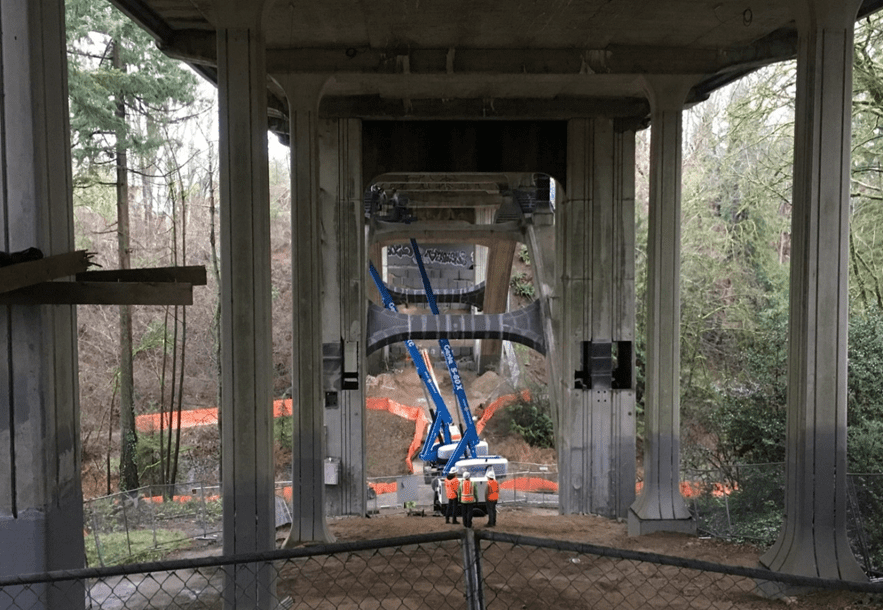
In June, we completed seismic retrofit construction on Cowen Park Bridge, the first completed project of our Levy funded bridge seismic retrofit program.
Earthquakes could have a significant detrimental effect on Seattle’s infrastructure. That’s why in 2016 the City of Seattle established a bridge seismic retrofit program and selected 16 bridges for seismic retrofits.
Cowen Park Bridge crosses a deep ravine in Cowen Park and connects the Roosevelt and Ravenna neighborhoods with the University District via 15th Ave NE.
In early September, we’ll break ground on another Levy funded projected along 15th Ave NE which will extend existing bike lanes on the Cowen Park Bridge north to Lake City Way NE and south to NE 55 St, and will add additional safety features including flashing lights at crosswalks and left turn zones.
One of the many positive impacts of this project will be moving the school bus load zones at Roosevelt High School from 15th Ave NE onto NE 68th St. These load zones are utilized by students with disabilities and the change means that the buses will drop students off adjacent to the accessible entrance and prevent the need for students having to navigate steep slopes and turns. This change will also prevent the conflict between cyclists traveling downhill and buses on 15th Ave NE.
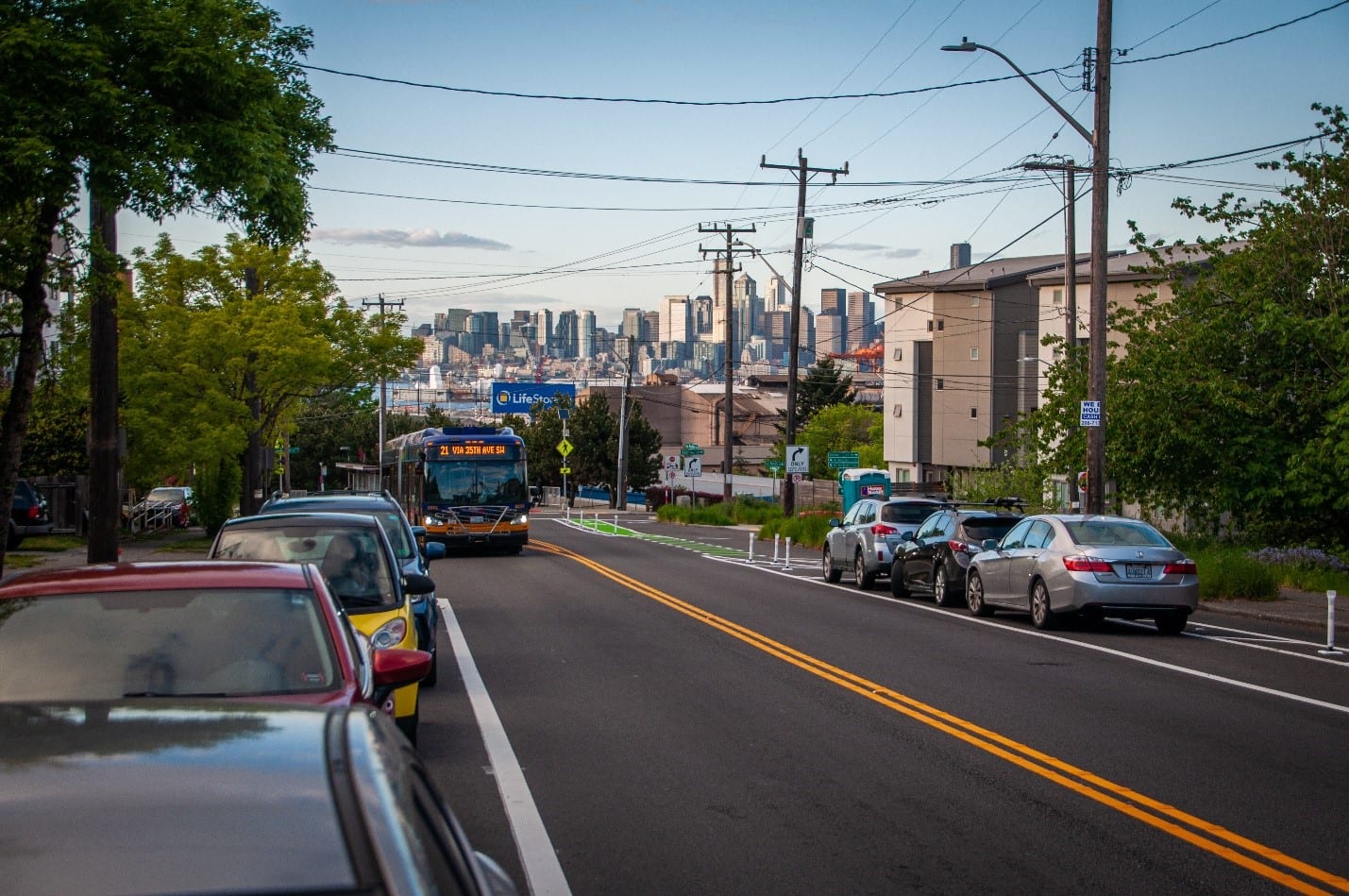
While we are committed to delivering Levy to Move Seattle projects, we’re still amidst unprecedented times with many unknowns ahead.
Our highest priority is to protect the health and safety of our workers and our community, and in Q2, between April and June, this included a focus on response to the emerging needs triggered by COVID-19. Because of this, high-risk crew staff stayed home for their personal health and safety, and crew staff were reallocated to address new priorities like our Stay Healthy Street installations, food and retail pickup zones, and hospital employee parking.
In addition, the closure of the West Seattle High-Rise Bridge brought an added level of complexity and reallocation of resources. All combined, these changes resulted in some lower Levy deliverable counts in Q2 that are reflected on pages 6-10 in this report.